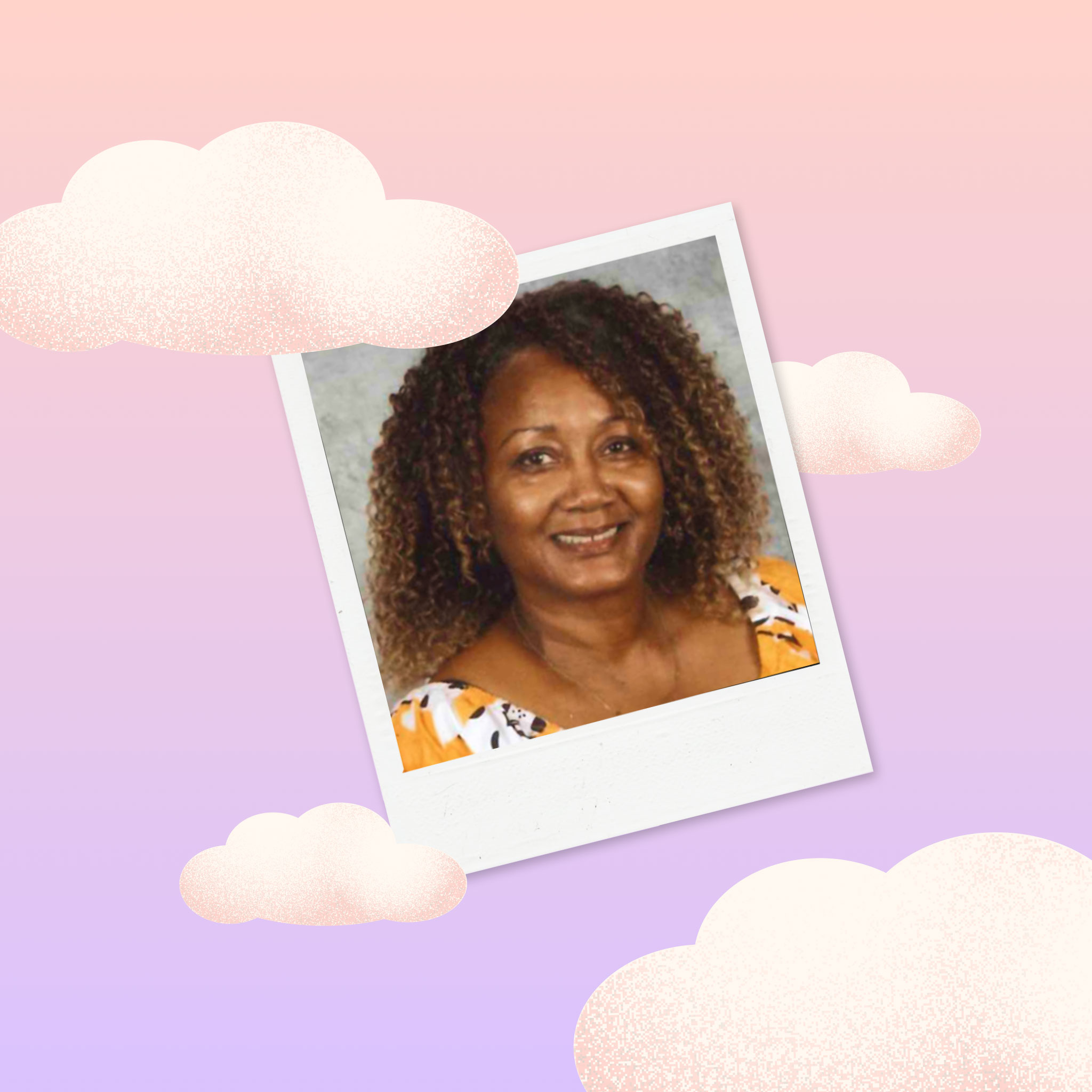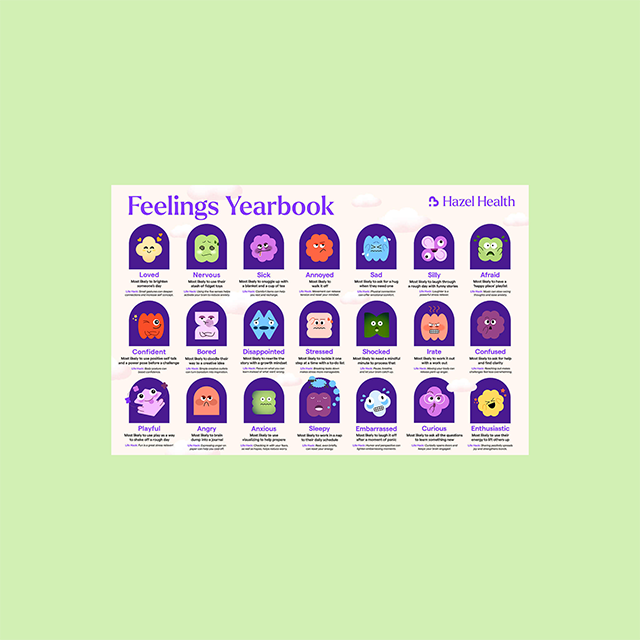Las escuelas desempeñan un papel fundamental a la hora de abordar y apoyar las necesidades de salud mental de los estudiantes. En Hazel, los consejeros escolares son la columna vertebral de nuestro trabajo de apoyo al bienestar de los estudiantes: identifican a los estudiantes que necesitan apoyo adicional, defienden el programa y conectan a los estudiantes con sus citas de teleterapia en la escuela.
En esta entrevista, Junette, una consejera de secundaria de las Escuelas Públicas de Hillsborough, comparte su experiencia con Hazel Health. Durante nuestra conversación, Junette nos contó su transición de la enseñanza de matemáticas a la consejería escolar, cómo y cuándo decide derivar a un estudiante al programa de Hazel, la importancia de la participación de las familias, los momentos memorables con Hazel y mucho más.
Cuéntenos sobre su experiencia. Cuénteme cómo fue su camino para convertirse en consejera escolar en HCPS.
Fue un recorrido muy largo. Esta es mi tercera carrera. Tengo dos hijos, y me quedé en casa unos cinco años después de que naciera el segundo. Estaba lista para volver al trabajo, ¡y conseguí dos empleos en un solo día! Conseguí un trabajo como maestra y un trabajo como analista financiera. Elegí enseñar. Tengo experiencia en matemáticas, así que me convertí en maestra de matemáticas de 6.º a 12.º grado. Di clases durante unos ocho años. Empecé a observar que, en el caso de muchos niños, no es que no sean capaces de aprobar, sino que todo tiene que ver con cómo piensan de sí mismos. Así que consideré la posibilidad de convertirme en consejera, y lo estuve haciendo desde 2007 en este distrito, y fue maravilloso.
¿Cómo es su día a día como consejera escolar?
No existe un día normal. Ante todo, nos ocupamos de los problemas de los estudiantes. Puede tratarse de lo que sea, desde crisis de salud mental y problemas con amigos hasta cambios de horarios. Además, tenemos reuniones de padres y reuniones de equipo, pero puede surgir cualquier cosa porque estamos tratando con niños. Y a veces hay que dejarlo todo. No existen los días normales, pero tenemos obligaciones. Salimos y supervisamos durante las horas de paso. Superviso el servicio del almuerzo. A veces, cuando los docentes se ausentan y nos faltan suplentes, doy una clase. Y luego, a principio de año y en época de exámenes, supervisamos. Podría tener que hacer cualquier cosa, e intento tener un plan, pero nunca se sabe. Y eso está bien.
¿Cómo se sintió cuando Hazel Health empezó a funcionar en su escuela?
Estaba muy contenta porque, en mi experiencia en primaria, contábamos con organismos externos que venían a la escuela para ayudarnos con la consejería, así que estaba acostumbrada a eso. Cuando llegué aquí, no existía, y teníamos que determinar cómo íbamos a dividir los casos de consejería del Programa de Educación Individualizada (IEP). Trabajo con otro consejero escolar, un trabajador social escolar y un psicólogo escolar, que vienen dos días a la semana. Tenemos que dividirlos como equipo. Así que, cuando oí hablar de Hazel Health, pensé: “Esto es bueno”. Lo introdujeron este verano, y pensé que sería algo muy positivo.
¿Cómo se sintió cuando se enteró de que Hazel Health es un servicio virtual?
No pensé que fuera a suponer un obstáculo porque los niños podrían estar en la escuela, y sé que a los niños no les molesta usar la laptop. Es lo que les gusta. No pensé que fuera algo negativo.
¿Puede describir un poco el proceso de derivación? ¿Cómo decide qué alumnos derivar a Hazel?
El proceso de derivación es muy simple. Me encanta. Debido a mi formación en primaria, son muy pocas las ocasiones en las que converso con un niño sobre algo importante y no me pongo en contacto con los padres. Esa es mi forma de actuar. Debo hacerles saber a los padres que el estudiante habló conmigo y cuál fue el problema. Se trata de su hijo. Si hablo con un estudiante sobre un tema y me doy cuenta de que va a necesitar más de una sesión de consejería, más que un simple control, le cuento sobre Hazel. Le pregunto si cree que es algo que le podría interesar. Y lo más probable es que diga: “Sí, lo probaré”. Luego, me pongo en contacto con sus padres. Es muy fácil. Es un proceso muy sencillo. Tengo toda la información del estudiante en el sistema delante de mí. Llamo a los padres y se los cuento. Suelen hacer preguntas como, por ejemplo, “¿de qué se trata?”. Pero una vez que les digo que es en la escuela y que es sin costo, entonces dicen: “Está bien, sí, lo intentaremos”. Y les cuento cómo es el proceso.
¿Existe alguna tendencia que observe en lo que respecta a los estudiantes que se derivan a Hazel?
Un tema clave es la autoestima. Y odio decir esto, pero un tema clave es que quieren darse por vencidos y simplemente decir: “Olvídalo”. Así que, desafortunadamente, ese fue un tema. Y les importa mucho lo que sus compañeros piensan de ellos. Si creen que no caen bien o que no van a encajar, muchas veces es como si se acabara el mundo.
Una vez que empiezan el programa, a todos les va bien, y me reúno con ellos. Les pregunto: “¿Cómo va todo?”. Y ellos responden: “Bien”. Ellos también lo esperan con ansias. Cuando veo una cita con Hazel, les doy un pase en clase. Se lo doy al estudiante y le recuerdo que tiene una cita a las 9:30, y me dice: “Sí, está bien”. Lo esperan con ansias, porque es un momento dedicado para ellos. Antes, con mis estudiantes de primaria, hacíamos grupos y algunas consejerías individuales, y teníamos ciertas cosas preparadas. Pero siempre hubo niños con los que sabía que no conectaba. De esta manera, ellos saben que van a tener tiempo dedicado y que no depende solo de mí y de mi horario. Con Hazel, saben que habrá otro momento, que podrán sentarse con el terapeuta y recibir la terapia individual que realmente necesitan. Así que funcionó muy bien.
Cómo se sienten los estudiantes con Hazel
Con Hazel, saben que habrá otro momento, que podrán sentarse con el terapeuta y obtener la terapia individual que realmente necesitan. Así que ha estado muy bien.
¿Hay algún momento específico del programa de Hazel que se le haya quedado grabado?
Tenemos un joven, está en sexto grado. Llegó con algunos problemas y dificultades para llevarse bien con sus compañeros… Dijo algunas cosas y no se retractó de nada. Ahora se le iluminan los ojos cuando le traigo su pase para su cita con Hazel y se lleva bien con sus amigos. Incluso antes de que tuviera ese incidente en la escuela, su madre había oído hablar de Hazel y se preguntaba cuándo íbamos a empezar. Ella estaba de acuerdo incluso antes de que nos pusiéramos en contacto con ella. Una vez que comenzó con Hazel, fue diferente. No hubo ni un solo incidente con él. Y se hizo amigos. Está progresando mucho.
Pienso en todos los niños, lo esperan con ansias. A veces, tenemos que usar diferentes lugares en la escuela para las citas de Hazel. Y a veces, tienen que usar mi consultorio. El terapeuta de Hazel comienza a hablar con ellos y ellos esperan a que me vaya. Y yo digo: “Están esperando a que me vaya para poder empezar”, porque saben que es su momento privado. Saben que soy consejera, pero dicen: “Cuando ella se vaya, empezaré a hablar con usted”. Eso es muy bueno. Creo que como el terapeuta de Hazel no está en el campus, y los estudiantes no lo ven todos los días ni lo ven por ahí, les resulta más fácil abrirse. Saben que es un adulto que los está ayudando. Entonces creo que eso es algo bueno.
—
¡Agradecemos mucho a Junette por tomarse el tiempo de charlar con nosotros sobre su trayectoria y su experiencia con el programa de Hazel! Gracias a la dedicación y empatía de consejeros escolares como Junette, los jóvenes reciben el apoyo que necesitan para prosperar dentro y fuera del aula.





